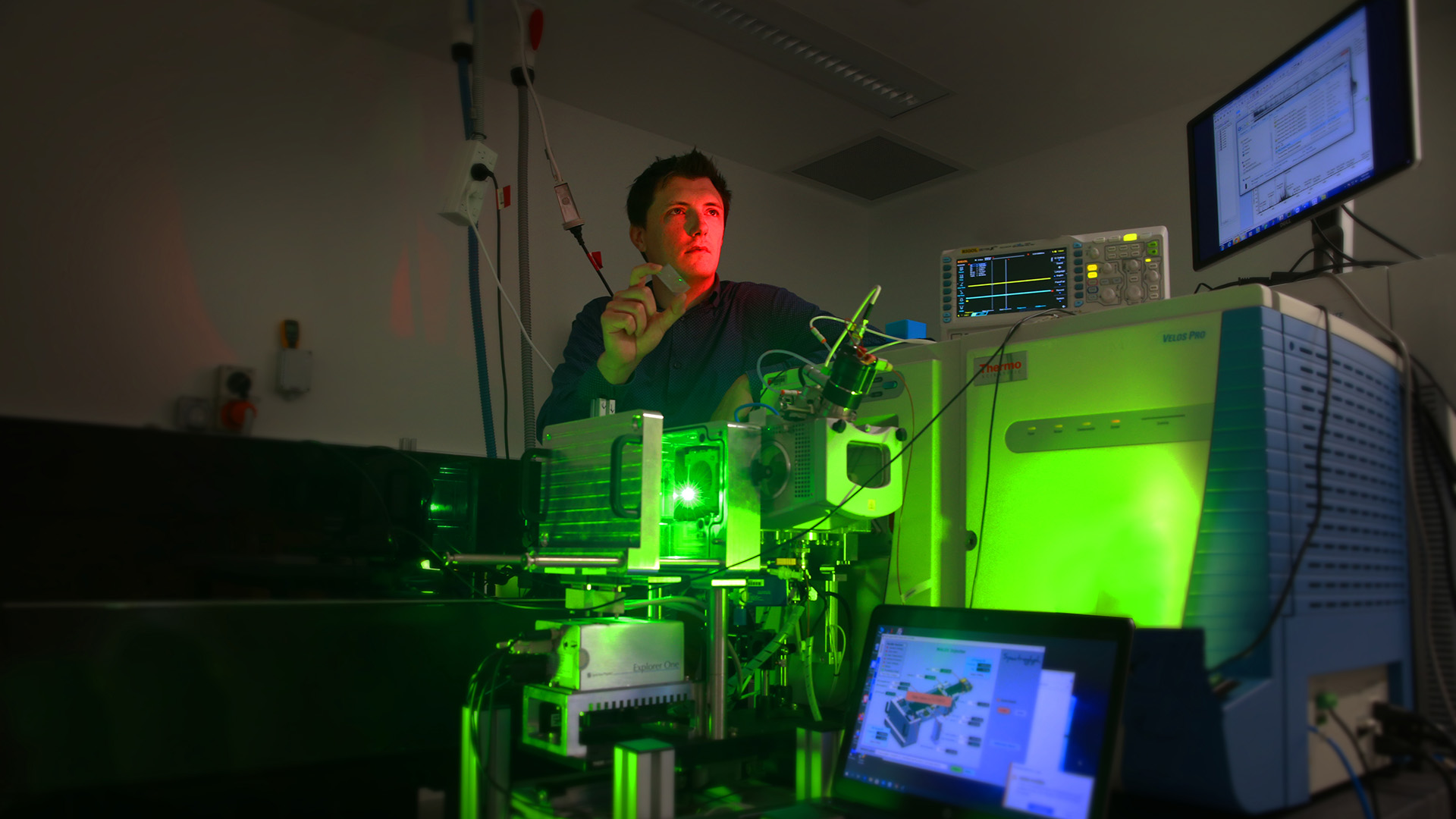November 16, 2020
UOW researcher gains funding for Parkinson’s disease study
Innovative research project wins support from Michael J Fox Foundation and Shake It Up Australia
University of Wollongong (UOW) scientist Dr Shane Ellis has secured funding from the Michael J Fox Foundation and the Shake It Up Australia Foundation for an international research project into Parkinson’s disease.
The international team includes Lipidomics Consulting, the Maastricht MultiModal Molecular Imaging Institute (M4I), MOBILion Systems, and Merck.
With this funding, the group will work to identify alterations in the metabolism of selective glycosphingolipids (GSLs) in specific brain regions that contribute to early Parkinson’s onset and accelerated progression rates.
Mutations in the GBA1 gene, the most prevalent genetic risk factor for Parkinson’s disease, result in accumulation of glucosylceramide and glucosylsphingosine. However we do not know the breadth of alterations in GSLs and how this contributes to Parkinson’s disease, said Dr Kim Ekroos, founder and CEO of Lipidomics Consulting.
Dr Ellis heads a research group at UOW’s Molecular Horizons that is focused on the continued development and application of mass spectrometry imaging. He is also affiliated with the Illawarra Health and Medical Research Institute (IHMRI).
Dr Ellis returned to UOW in January 2020 after the Australian Research Council awarded him a prestigious Future Fellowship. Prior to that Dr Ellis was an Assistant Professor at M4I from 2014-2019, where he led the instrumentation and application development group.
This project builds on several technical developments made by Dr Ellis’s group at M4I in Maastricht in the fields of mass spectrometry imaging (MSI) and lipid analysis. It will leverage both existing expertise and infrastructure available at M4I and that recently established at UOW.
“With the assembled team we can now start to understand and visualise, for the first time, the changes in composition and dynamic metabolism (flux) occurring within different brain regions in preclinical models of Parkinson’s disease,” Dr Ellis said.
“There is very little known about the role of changes in lipid metabolism in distinct brain regions in Parkinson’s disease. We know it is important, but we don’t know exactly where in the brain, nor how fast and via what metabolic processes these changes are happening.”
Current methods rely on the analysis of GSLs from whole tissue extracts and are thus blind to changes occurring in different regions of the brain.
“We will utilise innovative mass spectrometry imaging methods to study, for the first time, lipid alterations in different brain regions with a resolution as low as 10 micrometres,” Dr Ellis said.
“In addition, and this is where things get very exciting, we will combine MSI with isotope labelling methods that allow us to track the synthesis and breakdown rates of GSLs in different brain regions. As well, we will use high-resolution ion mobility to study how larger, more complex GSLs such as gangliosides are altered in Parkinson’s disease.
“With this support from The Michael J. Fox Foundation and Shake It Up Australia Foundation, we can now utilise experiments to identify in what ways the glycosphingolipid metabolism can be restored in Parkinson’s disease.
“Such experiments have never been done before in this context and will provide a great deal of new, biochemical knowledge on the roles of specific lipids in Parkinson’s disease. Only with a better molecular-level understanding of Parkinson’s disease can better treatments be developed.”
Dr Ellis will undertake the research using an innovative system his group in Maastricht developed that employs a new ionisation method (termed laser post-ionisation, or MALDI-2) on a high-resolution Orbitrap mass spectrometer. This approach is up to 100-times more sensitive in detecting GSLs than previous imaging methods.
“The imaging methods we will utilise provide cellular-level resolution for tissue imaging experiments, which is absolute state-of-the-art,” Dr Ellis said.
“The methods we develop will also have direct application to the many other tissue imaging studies we are undertaking with other researchers, both at UOW and externally.”
Dr Ellis’s lab at UOW’s Molecular Horizons is the first in the Southern Hemisphere and one of only three or four in the world, including M4I, to have this capability.



